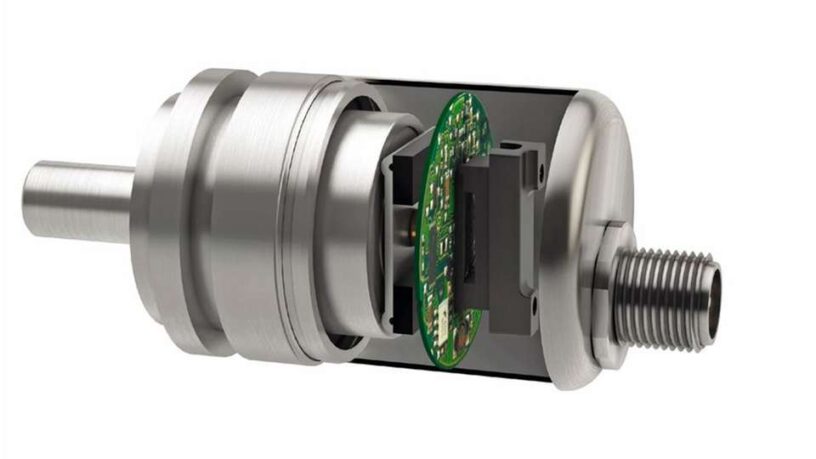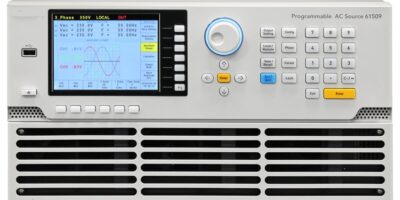Introduction and Overview
In today’s technologically advanced world, rotary encoders play a critical role in various applications across industries. The IP68 rotary encoder, in particular, stands out due to its enhanced protection against dust and water, making it suitable for harsh environments. The “IP” in IP68 stands for “Ingress Protection,” which is a standard outlining the degree of protection provided by mechanical casings and electrical enclosures against dust and water. The number “6” indicates that the product is dust-tight, while “8” signifies that it is protected against prolonged water immersion beyond one meter. This level of protection is essential for ensuring reliable performance in challenging conditions.
IP68 rotary encoders convert the angular position or motion of a shaft into an analog or digital signal. These encoders are used in diverse sectors, including automotive, aerospace, marine, robotics, and industrial automation, where they provide precise control and feedback. Their robust construction allows them to operate reliably in environments with high levels of dust, moisture, and mechanical stress.
Market Dynamics
Drivers
Increasing Automation: As industries continue to automate processes to enhance efficiency, reduce errors, and lower operational costs, the demand for reliable feedback mechanisms such as IP68 rotary encoders is rising. Automation in manufacturing, logistics, and material handling requires precise control systems, which rotary encoders provide by offering accurate position and motion data.
Demand for Robust Sensing Solutions: Many industries, such as automotive and aerospace, operate in environments where equipment is exposed to extreme conditions. The need for components that can withstand such environments without compromising performance drives the adoption of IP68 rotary encoders. Their ability to function in dusty, wet, or high-pressure environments makes them invaluable.
Advancements in Manufacturing Technologies: The continuous evolution of manufacturing technologies has enabled the production of more sophisticated and durable IP68 rotary encoders. Improvements in materials science and engineering have led to encoders that are not only more resilient but also more precise, enhancing their appeal across various applications.
Restraints
High Costs: One of the primary challenges in the IP68 rotary encoder market is the relatively high cost of these devices compared to standard rotary encoders. The materials and technologies required to achieve the IP68 rating contribute to these costs, which can be a barrier for some users, particularly in cost-sensitive applications.
Complexity in Design and Integration: The design and integration of IP68 rotary encoders into systems can be complex. Ensuring compatibility with existing systems, maintaining signal integrity, and addressing power and communication needs require specialized knowledge and careful planning, which can be a deterrent for some potential users.
Opportunities
Development of Smart Factories: The rise of smart factories and Industry 4.0 represents a significant opportunity for the IP68 rotary encoder market. As factories become more interconnected and automated, the need for reliable, real-time data on equipment performance increases. IP68 rotary encoders, with their robust performance and high durability, are well-suited for these applications, providing critical feedback for predictive maintenance and process optimization.
Adoption in New Sectors: The growing awareness of the benefits of IP68 rotary encoders is leading to their adoption in new sectors. Industries that previously relied on less robust encoders are now recognizing the advantages of IP68-rated devices, leading to expanded market opportunities.
Supply Chain and Distribution
Manufacturing Process
The manufacturing process for IP68 rotary encoders involves several critical steps:
- Design and Engineering: Developing the encoder design, including selecting materials and components to achieve the desired IP68 rating.
- Component Sourcing: Procuring high-quality materials and components, including sensors, housings, and seals, to ensure reliability and durability.
- Assembly: Assembling the encoder components in a controlled environment to prevent contamination and ensure precise alignment.
- Testing and Quality Control: Rigorous testing to verify that the encoders meet the required protection levels and performance specifications. This includes testing for dust and water ingress, as well as performance under various environmental conditions.
Distribution Channels
IP68 rotary encoders are distributed through various channels, including:
- Direct Sales: Manufacturers sell directly to end-users, providing personalized service and technical support.
- Distributors: Authorized distributors offer encoders from multiple manufacturers, providing a wide range of products and local support.
- Online Platforms: E-commerce platforms provide access to a broad selection of rotary encoders, allowing customers to compare products and make purchases online.
SWOT Analysis
Strengths
- Durability: IP68 rotary encoders are designed to withstand harsh environmental conditions, providing reliable performance in challenging applications.
- Accuracy: High precision in position and motion measurement makes these encoders suitable for applications requiring exact control and feedback.
- Versatility: Suitable for use in a wide range of industries, from automotive to aerospace to industrial automation.
Weaknesses
- High Cost: The materials and technologies required to achieve the IP68 rating contribute to higher costs compared to standard rotary encoders.
- Complexity: Designing and integrating IP68 rotary encoders can be complex, requiring specialized knowledge and careful planning.
Opportunities
- Expansion into New Industries: The growing awareness of the benefits of IP68 rotary encoders is leading to their adoption in new sectors, expanding market opportunities.
- Technological Advancements: Continuous innovation in materials and sensing technologies presents opportunities for developing more advanced and efficient encoders.
Threats
- Competition: The market is competitive, with several established players and new entrants continually developing new products and technologies.
- Economic Downturns: Economic downturns can affect capital investment in new equipment, impacting the demand for IP68 rotary encoders.
Strategic Recommendations
Market Entry Strategies
For new entrants in the IP68 rotary encoder market, the following strategies are recommended:
- Focus on Niche Markets: Identify and target niche markets where the specific advantages of IP68 rotary encoders can provide a competitive edge.
- Partnerships and Collaborations: Establish partnerships with key players in the automation and manufacturing sectors to gain market access and build credibility.
- Innovation and Differentiation: Invest in R&D to develop innovative products that offer unique features or improved performance compared to existing solutions.
Growth Strategies
For existing players, the following growth strategies are suggested:
- Product Innovation: Continue to invest in the development of new technologies and materials to enhance the performance and durability of IP68 rotary encoders.
- Market Expansion: Explore opportunities in new geographic regions and industries to expand market reach and increase sales.
- Customer Support: Enhance customer support and technical services to differentiate from competitors and build long-term relationships with clients.
Risk Mitigation
To mitigate potential risks, companies should:
- Diversify Supply Chains: Develop multiple sources for critical components to reduce dependency on single suppliers and mitigate supply chain disruptions.
- Monitor Market Trends: Stay informed about market trends and regulatory changes to adapt strategies and ensure compliance with evolving requirements.
- Invest in Training: Provide ongoing training for sales and technical staff to ensure they are knowledgeable about the latest products and technologies, enabling them to offer better support and advice to customers.
Receive the FREE Sample Report of IP68 Rotary Encoder Market Research Insights @ https://stringentdatalytics.com/sample-request/ip68-rotary-encoder-market/10572/
Market Segmentations:
Global IP68 Rotary Encoder Market: By Company
• BEI Sensors
• TR Electronic
• OMRON
• Elma Group
• Baumer
• Heidenhain
• Koyo Electronics
• Kuebler
• Electronica Mechatronic Systems
• FRABA Group
• Renishaw
• Lika Electronic
• Scancon
Global IP68 Rotary Encoder Market: By Type
• Incremental Rotary Encoder
• Absolute Rotary Encoder
• Other Type
Global IP68 Rotary Encoder Market: By Application
• Machinery
• Transfer Equipment
• Elevator
• Other
Regional Analysis of Global IP68 Rotary Encoder Market
North America: The North American market for IP68 rotary encoders is driven by the region’s strong industrial base, advanced manufacturing technologies, and growing adoption of automation. The automotive and aerospace industries are significant contributors to the demand for IP68 rotary encoders.
Europe: Europe’s market is characterized by its focus on advanced manufacturing, automotive innovation, and stringent environmental regulations. The demand for IP68 rotary encoders is strong in this region, particularly in industries requiring high precision and reliability.
Asia-Pacific: The Asia-Pacific region is experiencing rapid industrialization and automation, leading to increased demand for IP68 rotary encoders. The growing automotive and electronics manufacturing sectors in countries like China, Japan, and South Korea are significant drivers of market growth.
Latin America: The Latin American market for IP68 rotary encoders is growing, driven by increasing industrialization and investment in automation. The demand is particularly strong in the automotive and manufacturing sectors.
Middle East & Africa: In the Middle East and Africa, the market is expanding due to investments in infrastructure, industrialization, and the growing adoption of automation technologies. The harsh environmental conditions in some areas of this region make IP68 rotary encoders particularly valuable.
Click to Purchase IP68 Rotary Encoder Market Research Report @ https://stringentdatalytics.com/purchase/ip68-rotary-encoder-market/10572/
Technological Trends
Advancements in Materials
The development of new materials has significantly enhanced the performance and durability of IP68 rotary encoders. Advances in materials science have led to the use of more durable and corrosion-resistant materials in encoder construction. These materials improve the longevity and reliability of encoders, especially in harsh environments where exposure to dust, moisture, and chemicals is common.
Integration with IoT
The integration of IP68 rotary encoders with the Internet of Things (IoT) is a significant trend. IoT-enabled encoders can provide real-time data on equipment performance, enabling predictive maintenance and improved process control. This connectivity allows for better monitoring and management of industrial equipment, reducing downtime and enhancing efficiency.
Miniaturization
The trend toward miniaturization has led to the development of smaller and more compact IP68 rotary encoders. Advances in sensor technology and microelectronics have enabled the production of encoders with reduced size without compromising performance. These smaller encoders are particularly valuable in applications where space is limited or where compact designs are required.
Market Analysis
Current Market Size
The IP68 rotary encoder market has seen substantial growth in recent years, driven by increasing demand across various industries. As of the latest analysis, the global market size for IP68 rotary encoders is estimated to be in the range of USD 300 million to USD 500 million. This growth is attributed to the rising adoption of automation technologies and the need for robust and reliable sensing solutions in harsh environments.
Forecast
The IP68 rotary encoder market is expected to continue its growth trajectory over the next 5-10 years. Market forecasts project a compound annual growth rate (CAGR) of approximately 6-8%, driven by increasing industrial automation, advancements in encoder technology, and expanding applications in new sectors. By 2030, the market size is expected to exceed USD 800 million, with significant contributions from the automotive, aerospace, and industrial machinery sectors.
Competitive Landscape
The IP68 rotary encoder market is characterized by the presence of several key players who dominate the market. These include established companies like:
- Heidenhain: Known for its high-precision encoders used in various industrial and automation applications.
- Baumer: Offers a wide range of rotary encoders known for their reliability and durability in harsh environments.
- BEI Sensors: Specializes in sensors and encoders designed for demanding applications, including IP68-rated models.
- Kubler: Provides innovative encoder solutions with a focus on robustness and accuracy.
- Rockwell Automation: Known for its comprehensive range of automation products, including rotary encoders.
These companies have a strong presence in the market, supported by extensive product portfolios, technological expertise, and established distribution networks. The competitive landscape is also marked by ongoing innovation, with companies continuously developing new products and technologies to meet evolving market demands.
Regulatory and Compliance
Standards
IP68 rotary encoders must adhere to various industry standards to ensure their performance and reliability in harsh environments. Some of the relevant standards include:
- IEC 60529: Defines the levels of protection provided by enclosures against dust and water (Ingress Protection or IP ratings).
- ISO 9001: Specifies requirements for quality management systems, ensuring consistent quality in manufacturing processes.
- RoHS (Restriction of Hazardous Substances): Restricts the use of specific hazardous materials in the production of electronic equipment.
Compliance Requirements
Compliance with these standards and regulations is essential for manufacturers of IP68 rotary encoders. Ensuring compliance involves rigorous testing and quality assurance processes to meet the specified protection levels and performance criteria. Additionally, manufacturers must stay abreast of evolving regulations and standards to ensure their products remain compliant and competitive in the market.
End-User Insights
Customer Requirements
End-users of IP68 rotary encoders typically have specific requirements that influence their purchasing decisions. Key requirements include:
- High Accuracy: Precision in position and motion measurement is critical for applications where accurate feedback is necessary for control and monitoring.
- Durability: The ability to withstand harsh environmental conditions, including exposure to dust, moisture, and mechanical stress, is essential.
- Ease of Integration: Encoders that can be easily integrated into existing systems and equipment are preferred, reducing installation time and complexity.
- Reliability: Consistent performance and low maintenance requirements are important for minimizing downtime and operational costs.
Case Studies
Automotive Industry: In the automotive sector, IP68 rotary encoders are used in applications such as electric power steering systems. A leading automotive manufacturer integrated IP68 rotary encoders into their steering systems to provide precise position feedback, improving steering accuracy and vehicle control. The encoders’ ability to operate reliably in the presence of dust and moisture contributed to enhanced performance and reduced maintenance costs.
Aerospace Industry: An aerospace company used IP68 rotary encoders in their flight control systems to ensure accurate position feedback in harsh conditions. The encoders’ robust construction allowed them to withstand the extreme temperatures and pressures encountered during flight, providing reliable data for critical control functions.
Industrial Automation: A manufacturing company implemented IP68 rotary encoders in their conveyor systems to provide precise feedback on position and speed. The encoders’ durability and resistance to dust and moisture improved the reliability of the conveyor systems, reducing downtime and maintenance requirements.
About Stringent Datalytics
Stringent Datalytics offers both custom and syndicated market research reports. Custom market research reports are tailored to a specific client’s needs and requirements. These reports provide unique insights into a particular industry or market segment and can help businesses make informed decisions about their strategies and operations.
Syndicated market research reports, on the other hand, are pre-existing reports that are available for purchase by multiple clients. These reports are often produced on a regular basis, such as annually or quarterly, and cover a broad range of industries and market segments. Syndicated reports provide clients with insights into industry trends, market sizes, and competitive landscapes. By offering both custom and syndicated reports, Stringent Datalytics can provide clients with a range of market research solutions that can be customized to their specific needs.
Reach US
Stringent Datalytics
+1 346 666 6655
Social Channels:
Linkedin | Facebook | Twitter | YouTube




Leave a Reply